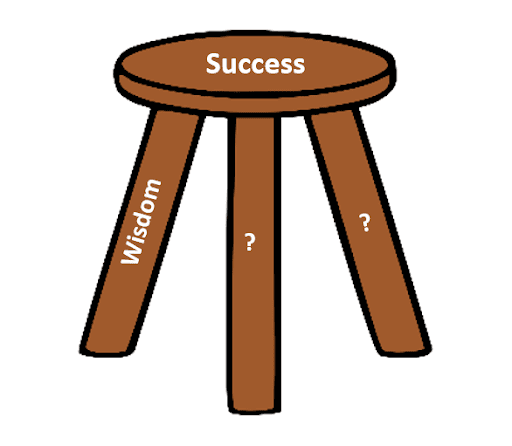I’m walking in wisdom! (and don’t it feel good!)
Welcome to our weekly #sandboxsummary - In these articles we give you some highlights from the weekend’s sessions.
This week’s topic was wisdom - What does it mean to be wise? Is it a character trait, a skill, a possession? Is wisdom amoral? Is it earned or learned? Can you be a wise hypocrite, or a wise murderer? What traits do you need to effectively implement wisdom into your life?
Our loyal rabbit-hole aficionados dug their way through these questions (and more) over the three weekend sessions. Here we bring you 3 insights we found beneath the sand…
Wisdom is not something one possesses, but something one manifests
One definition was that wisdom is the ability to think and act in a situation so as to achieve a good outcome. It’s the ability to have insights which see into the true nature of reality in specific fields or contexts.
Wisdom would therefore be situational - not something one possesses, but something one manifests. A wise person in one domain could be inexperienced and naïve in another.
Wisdom has layers – from specific and contextual to broad and ubiquitous
Can a murderer be wise? What about a mafioso?
So, wisdom is situational - the ability to see the truth in a scenario, and the knowledge of how to navigate the situation get a desired outcome. But is there a moral component? If wisdom is fully goal and scenario based, then a psychopathic serial killer, a mob-boss, or a dictator could all be considered wise in their pursuits, which, in and of themselves, may be immoral.
Are there different layers of wisdom? Short- and long-term wisdom? Field expertise vs life philosophies?
Are ancient wisdoms and maxims an example of consistent truths which can apply in all situations – and does this ubiquity perhaps speak more to the true nature of wisdom?
The three-legged stool of success – (I’m seated in wisdom!)
We intuitively understand the value of wisdom – but is wisdom alone enough to achieve success, happiness, or fulfilment?
In the stool model we explored the other missing components….
The stool of success…
Imagine a stool, where the seat is success/fulfilment, and wisdom is one of the legs. What would the other two legs be? What
are the crucial characteristics that allow you to implement the wisdom you have into your life, and turn it into action to achieve your goals?
Various legs were described – discipline, compassion, a plan, patience, but consistent themes emerged…
The first leg was knowledge based – this is the wisdom leg we already mentioned - you need to understand what you want, why you want it, and how best to get there – the map.
The second leg was power based – an energy or a drive for the goal – you need to have willpower, discipline, perseverance, or energy, to power your continued action in your pursuit.
The third leg is emotional – you need to have a positive affinity to the outcome, you need to believe in your heart that achieving it is a good thing for you to do, and you need to have compassion, patience and acceptance for the days where the journey is tough.
And the final component is upkeep – this is the varnishing and maintenance of the wood – representing your own health and wellbeing, and the work you need to do on yourself to be in a healthy enough state to use your stool of success – avoiding breakdown or decay.
What would your stool of success look like? Did we miss any pieces? Send us a reply email and let us know your thoughts!
Thank you for reading our #sandboxsummary recap – make sure to join us again next time to help our loyal sandbox afficionados dig deep into the rabbit hole on next week’s topic!
We’ll leave you with a sandbox word of the day:
Metanoia:A change of thinking that results in a change of behaviour or way of life.
Good existence!
Sandbox Team

